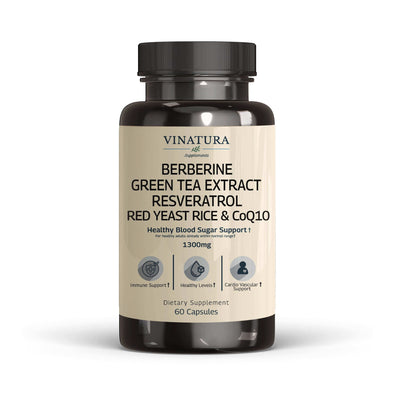
Fucoxanthin for Weight Loss: Natural Fat Burner Guide
In the quest for natural weight loss solutions, reducing visceral fat and belly fat is often a priority due to its positive impact on health. Fucoxanthin, a compound found in brown seaweed, is gaining attention as a promising natural fat burner for its ability to boost metabolism.
This article dives into fucoxanthin for weight loss, exploring how it works, its effectiveness based on studies, how to use it properly, and real-world user experiences.
The goal is to provide clear information to help you decide if this is the right choice for achieving your body goals safely and sustainably.
Before exploring further, please read the disclaimer located at the end of this webpage.
Key Takeaways
- Fucoxanthin is a carotenoid found in brown seaweed and microalgae, traditionally used in Asian diets.
- Fucoxanthin may support fat metabolism by activating UCP1 and promoting thermogenesis.
- Fucoxanthin is considered well-tolerated for short-term use at doses of 2–5 mg per day and does not cause stimulant-like effects.
- Fucoxanthin is fat-soluble, so it is better absorbed when taken with healthy fat-rich foods.
- Always consult a healthcare professional before using any dietary supplement.
What is Fucoxanthin and How Does It Work?
Fucoxanthin is a natural compound in the carotenoid family, specifically a xanthophyll, with colors ranging from orange to dark yellow or brown.
It’s commonly found in brown seaweeds like Wakame, Ma-Kombu, Hijiki, and Sargassum fulvellum, as well as certain microalgae like Phaeodactylum tricornutum [1,16].
It’s one of the most abundant carotenoids, making up over 10% of all carotenoids globally, and plays a significant role in nature and health research [16].

Fucoxanthin supports weight loss by enhancing metabolic activity through multiple mechanisms. It promotes thermogenesis—the process of generating heat instead of storing energy as fat—by activating UCP1, a protein primarily found in brown fat, which burns calories to produce heat [11,4].
Remarkably, fucoxanthin can also trigger UCP1 expression in white fat, particularly the kind that accumulates around the belly and internal organs, converting it into metabolically active beige fat [11].
Studies in mice and obese individuals have confirmed that fucoxanthin increases brown fat levels and boosts UCP1 activity, thereby supporting more efficient fat burning.
However, since results from animal studies may not always translate directly to humans, more well-designed clinical trials are needed to confirm these effects in the general human population.
Learn more: 7 Best Fucoxanthin Supplements For Thyroid Health And Metabolism Support
In addition, fucoxanthin helps reduce visceral fat accumulation by inhibiting fat-forming enzymes and accelerating beta-oxidation, the process of breaking down fat for energy [6, 9]. It also activates CPT1A, an enzyme that enhances the body’s ability to burn fatty acids more efficiently [15].
Fucoxanthin has been studied for its potential to influence lipid metabolism, including effects on triglyceride levels, total cholesterol, and cholesterol absorption in the liver.
This effect is linked to the modulation of receptors such as LDLR and SR-B1, while increasing PCSK9, a protein that promotes the breakdown of LDL receptors, thereby supporting more effective cholesterol control [4,9].
Beyond its investigated role in fat metabolism, fucoxanthin has also been examined for its potential influence on hormonal pathways and markers related to glucose regulation.
It has been studied for its potential to influence leptin, a hormone associated with appetite regulation, and to affect pathways related to glucose metabolism [9,17].
Furthermore, fucoxanthin helps reduce inflammation and oxidative stress, two common conditions in overweight individuals, making it a well-rounded tool for weight management and metabolic health support [2].
Fucoxanthin for Weight Loss: What the Science Says
Scientific research on fucoxanthin, a natural compound in brown seaweed, has drawn attention for its potential to aid weight loss and improve health. Studies from lab experiments to human trials offer insights into how this compound supports weight management and fat metabolism.
Lab studies provide foundational insights into fucoxanthin’s fat-reducing properties. In one experiment using 3T3-L1 fat cells, researchers tested a fucoxanthin-rich microalgae extract from Phaeodactylum tricornutum [9].
Both pure fucoxanthin and the extract were found to reduce fat accumulation in the cells without causing toxicity.
At higher concentrations, they lowered the expression of PPARγ, a factor that promotes fat storage, and increased UCP1, a protein responsible for boosting energy expenditure and heat production. These changes suggest that fucoxanthin supports fat reduction at the cellular level.
In 2012, Beppu and colleagues investigated fucoxanthin’s effects on obese, diabetic KK-Ay mice to explore its influence on cholesterol metabolism [1]. After four weeks on a diet containing 0.2% fucoxanthin, the mice given fucoxanthin showed significant weight loss compared to controls.
The study also noted increases in blood cholesterol—both total and HDL—while cholesterol levels in the liver and white adipose tissue decreased. Researchers attributed this to changes in cholesterol regulation. This suggests a complex redistribution of cholesterol and a reduction in tissue fat accumulation.
Moving to human trials, a key study by Shih and colleagues in 2021 examined the effects of a blend of low-molecular-weight fucoidan and high-stability fucoxanthin (LMF-HSFx) on individuals with non-alcoholic fatty liver disease (NAFLD) [13].
Over a 24-week period, 42 participants took three capsules daily—each containing 275 mg of LMF and 275 mg of HSFx—twice a day. Compared to the placebo group, the group receiving fucoxanthin experienced notable improvements in liver enzyme levels (AST/ALT), liver fat, and inflammatory markers such as IL-6 and IFN-γ.
The supplement was associated with changes in markers related to insulin response, lipid profiles (cholesterol and triglycerides), and levels of adiponectin and leptin—factors often studied in the context of metabolic regulation. These findings suggest that fucoxanthin may play a role in supporting metabolic function and influencing body composition.
Together, these studies suggest that fucoxanthin may aid in weight loss through various mechanisms—reducing fat buildup, improving lipid distribution, regulating metabolism, and decreasing inflammation.
However, outcomes can vary depending on the type of study and the population involved. The next section will explore real-world experiences from users who have incorporated fucoxanthin into their weight management routines.
Fucoxanthin Weight Loss Reviews: What Real Users Say

Feedback from people discussing fucoxanthin shows varied experiences with this compound for weight loss. Many users report not noticing significant changes, even after using Lilliputian products regularly for weeks.*
Some who used high doses of pure fucoxanthin (up to a few grams in the past) saw no notable weight loss.
Others combining fucoxanthin with low-carb or keto diets reported positive changes, like maintaining weight loss momentum or feeling more committed due to the cost of the supplement.
However, some noted that many market supplements contain low doses (1–2 mg per capsule), far below the 2.5–8 mg daily doses used in clinical studies, which may explain limited results.*
On the other hand, reviews of products with 3 mg fucoxanthin are more positive, with over 50% of users satisfied, particularly praising its ability to curb appetite and support gentle weight loss without much effort.
One user reported losing nearly 13 pounds (~5.5 kg) in a month by taking two capsules daily with plenty of water and eating healthily. Another user bought a second bottle due to satisfying results and no side effects.
Unlike other approaches aimed at appetite control, users also reported feeling fuller for longer, snacking less, and occasionally skipping dinner without experiencing hunger.*
However, not everyone had positive experiences. Some used the product for a week with regular exercise but saw no change in weight or energy. Others felt it might need more time or wasn’t suited to their body, while some reported no difference even after weeks of use.*
In simple terms, real-world reviews of fucoxanthin for weight loss are mixed. Those using sufficient doses and maintaining a healthy lifestyle tend to notice better results. Without dietary changes or with low-dose products, the effects may not meet expectations.*
How Fucoxanthin Works as a Natural Fat Burner

Fucoxanthin helps burn fat naturally by boosting metabolism, promoting thermogenesis, and targeting visceral fat—without relying on stimulants.
Unlike compounds like caffeine or nicotine, fucoxanthin does not overstimulate the nervous system. Instead, it supports weight loss in a gentler way, making it ideal for individuals sensitive to stimulants.
Studies show that fucoxanthin enhances energy metabolism without causing jitters, anxiety, or insomnia—common side effects of other fat-burning agents [2,5,17].
One of fucoxanthin’s notable features is its interaction with UCP1, a protein found in brown and beige fat cells that plays a role in thermogenesis—the process of converting energy into heat [11].
This not only increases energy expenditure but also decreases fat accumulation in the belly, kidneys, and intestines. Animal studies have shown that amarouciaxanthin A, a metabolite of fucoxanthin, accumulates in visceral fat and contributes to its reduction [6,11]. However, further human studies are needed to determine whether these effects are replicable and effective in human populations.
In addition, fucoxanthin improves fat metabolism by lowering triglyceride and cholesterol levels in the liver.
It inhibits lipogenic enzymes like FAS, ME, and G6PD, while enhancing beta-oxidation, a key process in fat burning [15,17]. These effects contribute to both weight loss and better lipid profiles.
In conclusion, fucoxanthin is particularly beneficial for those with slow metabolism or stubborn belly fat.
Its ability to promote fat burning without stimulant-related side effects makes it a promising option for sustainable weight management—especially for people who are sensitive to caffeine or have medical reasons to avoid it [2,11].
How to Use Fucoxanthin for Weight Loss Effectively
Recommended Dosage:
Most studies suggest a daily dose of 2–4 mg for adults.
- For example, 2.4 mg/day was shown to significantly reduce belly fat after 4–8 weeks [11].
- Fucoxanthin from microalgae is considered safe at up to 3 mg/day long-term, or 5 mg/day for short-term use (under 90 days) [12].
How to Take:
Fucoxanthin is fat-soluble, meaning it absorbs better when taken with healthy fats.
- Take before a meal that contains fat, such as salmon, avocado, or coconut oil.
- It dissolves better in oils like fish oil or MCT oil compared to plant oils [17].
Duration:
Visible results often appear after 8–12 weeks of consistent use.
-
Some people notice effects sooner (around 4 weeks), but optimal fat-burning and liver benefits typically require longer use [5,17].
Available Forms:
Fucoxanthin is available in different supplement types:
- Pure capsules (used in most clinical trials) [11]
- Fucoxanthin is available in combination formulas such as Fucoxanthin with CLA, Fucoxanthin with L-carnitine, or Xanthigen (with pomegranate seed oil) to enhance fat metabolism and support liver health [6,9].
Is Fucoxanthin Safe for Weight Loss?

Fucoxanthin is considered safe at appropriate doses for weight loss, with low toxicity and minimal side effects [17]. Lab studies confirm it doesn’t harm cells, supporting its safety in controlled conditions [16].
However, safety for everyone isn’t guaranteed. More human clinical trials are needed to fully confirm its safety and effectiveness, especially for those with underlying conditions or pregnant women. Consulting a doctor is crucial for these groups.
With its safety profile clarified, comparing fucoxanthin to other fat burners can help determine if it’s the right choice. The next section breaks down how it stacks up against other options.
Fucoxanthin vs Other Fat Burners: How Does It Compare?
|
Active Ingredient |
Advantages |
Disadvantages |
|
Fucoxanthin (Fx) |
|
|
|
Caffeine |
|
|
|
CLA (Conjugated Linoleic Acid) |
|
|
|
Green Tea Extract |
|
|
Final Verdict: Should You Try Fucoxanthin for Weight Loss?
Fucoxanthin stands out as a natural weight loss aid, particularly effective for reducing visceral fat around the belly and organs [11].
It promotes thermogenesis via UCP1, burning energy instead of storing it as fat, while improving lipid metabolism and reducing liver triglycerides and cholesterol [11, 17].
Its safety, low toxicity, and lack of nervous system stimulation make it free of side effects like jitters or insomnia, unlike caffeine [16, 17]. However, results vary by individual, and sufficient doses (2.4–5 mg/day) plus a healthy lifestyle are key for noticeable effects [5, 12].
It’s ideal for those seeking slow, sustainable fat loss, especially with stubborn belly fat or slow metabolism [11].
It’s also great for people sensitive to stimulants like caffeine or unable to use them due to health issues [2]. For best results, use it consistently for 8–12 weeks alongside a balanced diet and regular exercise [12, 17].
If you’re looking for a safe, natural fat burner without discomfort, fucoxanthin is worth trying. Consult a doctor and pair it with a healthy lifestyle for optimal results.
Frequently Asked Questions
How long does Fucoxanthin take to work for weight loss?
Fucoxanthin may show results in 6–12 weeks, depending on your body and lifestyle. Some studies report effects as early as 4 weeks, but consistency is key [5].
Can Fucoxanthin help reduce belly fat specifically?
Yes, fucoxanthin is particularly effective at reducing visceral fat around the belly and organs by activating UCP1 and reducing white fat buildup [11].
Is it better to use Fucoxanthin alone or with other ingredients?
Combining fucoxanthin with CLA, fish oil, or pomegranate seed oil may boost weight loss through synergistic effects. Choose reputable products and consult a professional.
Is Fucoxanthin suitable for vegetarians or vegans?
Fucoxanthin from seaweed or microalgae is vegetarian-friendly, but check capsule shells (which may contain gelatin) and look for “vegan-friendly” labels to ensure compatibility with a vegan diet.
Conclusion
Fucoxanthin emerges as a promising natural weight loss solution, particularly for reducing visceral fat and improving lipid metabolism without the stimulation of typical fat burners. Its high safety profile at proper doses and compatibility with a healthy lifestyle make it ideal for sustainable weight loss. Results vary by individual, requiring patience and a balanced diet. Ready to try fucoxanthin for your body goals? Use this guide and consult a professional to make your journey more effective!
Testimonial Disclaimer
*The testimonials presented on this website are provided by individuals based on their personal experiences with our products. These testimonials represent individual opinions and experiences, which may not be typical or applicable to all users of our products. Results may vary depending on a variety of factors, including individual health, lifestyle, and adherence to product usage instructions.References
- [1] Beppu, F., Hosokawa, M., Yoshimi Niwano, & Miyashita, K. (2012). Effects of dietary fucoxanthin on cholesterol metabolism in diabetic/obese KK-A y mice. Lipids in Health and Disease, 11(1). https://doi.org/10.1186/1476-511x-11-112
- [2] D’Orazio, N., Gemello, E., Gammone, M. A., de Girolamo, M., Ficoneri, C., & Riccioni, G. (2012). Fucoxantin: a treasure from the sea. Marine Drugs, 10(3), 604–616. https://doi.org/10.3390/md10030604
- [3] Egras, A. M., Hamilton, W. R., Lenz, T. L., & Monaghan, M. S. (2011). An Evidence-Based Review of Fat Modifying Supplemental Weight Loss Products. Journal of Obesity, 2011, 1–7. https://doi.org/10.1155/2011/297315
- [4] Gammone, M., & D’Orazio, N. (2015). Anti-Obesity Activity of the Marine Carotenoid Fucoxanthin. Marine Drugs, 13(4), 2196–2214. https://doi.org/10.3390/md13042196
- [5] Guan, B., Chen, K., Tong, Z., Chen, L., Chen, Q., & Su, J. (2022). Advances in Fucoxanthin Research for the Prevention and Treatment of Inflammation-Related Diseases. Nutrients, 14(22), 4768. https://doi.org/10.3390/nu14224768
- [6] Hu, X., Li, Y., Li, C., Fu, Y., Cai, F., Chen, Q., & Li, D. (2012). Combination of fucoxanthin and conjugated linoleic acid attenuates body weight gain and improves lipid metabolism in high-fat diet-induced obese rats. Archives of Biochemistry and Biophysics, 519(1), 59–65. https://doi.org/10.1016/j.abb.2012.01.011
- [7] Hursel, R., Viechtbauer, W., & Westerterp-Plantenga, M. S. (2009). The effects of green tea on weight loss and weight maintenance: a meta-analysis. International Journal of Obesity, 33(9), 956–961. https://doi.org/10.1038/ijo.2009.135
- [8] Kamphuis, M. M. J. W., Lejeune, M. P. G. M., Saris, W. H. M., & Westerterp-Plantenga, M. S. (2003). Effect of conjugated linoleic acid supplementation after weight loss on appetite and food intake in overweight subjects. European Journal of Clinical Nutrition, 57(10), 1268–1274. https://doi.org/10.1038/sj.ejcn.1601684
- [9] Koo, S. Y., Hwang, J.-H., Yang, S.-H., Um, J.-I., Hong, K. W., Kang, K., Pan, C.-H., Hwang, K. T., & Kim, S. M. (2019). Anti-Obesity Effect of Standardized Extract of Microalga Phaeodactylum tricornutum Containing Fucoxanthin. Marine Drugs, 17(5), E311. https://doi.org/10.3390/md17050311
- [10] Larsen, T. M., Toubro, S., & Astrup, A. (2003). Efficacy and safety of dietary supplements containing CLA for the treatment of obesity. Journal of Lipid Research, 44(12), 2234–2241. https://doi.org/10.1194/jlr.r300011-jlr200
- [11] Miyashita, K., & Hosokawa, M. (2017). Fucoxanthin in the management of obesity and its related disorders. Journal of Functional Foods, 36, 195–202. https://doi.org/10.1016/j.jff.2017.07.009
- [12] Sayuti, N. H., Muhammad Nawawi, K. N., Goon, J. A., Mokhtar, N. M., Makpol, S., & Tan, J. K. (2023). A Review of the Effects of Fucoxanthin on NAFLD. Nutrients, 15(8), 1954. https://doi.org/10.3390/nu15081954
- [13] Shih, P.-H., Shiue, S.-J., Chen, C.-N., Cheng, S.-W., Lin, H.-Y., Wu, L.-W., & Wu, M.-S. (2021). Fucoidan and Fucoxanthin Attenuate Hepatic Steatosis and Inflammation of NAFLD through Modulation of Leptin/Adiponectin Axis. Marine Drugs, 19(3), 148. https://doi.org/10.3390/md19030148
- [14] Westerterp-Plantenga, M. S., Lejeune, M. P. G. M., & Kovacs, E. M. R. (2005). Body Weight Loss and Weight Maintenance in Relation to Habitual Caffeine Intake and Green Tea Supplementation. Obesity Research, 13(7), 1195–1204. https://doi.org/10.1038/oby.2005.142
- [15] Woo, M.-N., Jeon, S.-M., Young Chul Shin, Lee, M.-K., Mi Ae Kang, & Choi, M. (2009). Anti-obese property of fucoxanthin is partly mediated by altering lipid-regulating enzymes and uncoupling proteins of visceral adipose tissue in mice. Molecular Nutrition & Food Research, 53(12), 1603–1611. https://doi.org/10.1002/mnfr.200900079
- [16] Xiao, H., Zhao, J., Fang, C., Cao, Q., Xing, M., Li, X., Hou, J., Ji, A., & Song, S. (2020). Advances in Studies on the Pharmacological Activities of Fucoxanthin. Marine Drugs, 18(12), 634. https://doi.org/10.3390/md18120634
- [17] Zhang, H., Tang, Y., Zhang, Y., Zhang, S., Qu, J., Wang, X., Kong, R., Han, C., & Liu, Z. (2015). Fucoxanthin: A Promising Medicinal and Nutritional Ingredient. Evidence-Based Complementary and Alternative Medicine, 2015, 1–10. https://doi.org/10.1155/2015/723515
Author

Product Disclaimer
The dietary supplement products mentioned on this website are formulated based on scientific research and adhere to FDA guidelines for dietary supplements. However, the content of the articles has not been evaluated by the Food and Drug Administration (FDA) and is not intended to promote or endorse any specific product. Any products sold on this website are not intended to diagnose, treat, cure, or prevent any disease.
Opinions and Endorsements
Any claims, statements, or opinions expressed in the articles are those of the author(s) and do not necessarily reflect the views or opinions of the manufacturers of the dietary supplement products. The products sold on this website are separate from the content of the articles and are not directly endorsed or associated with the information presented here.
Liability Disclaimer
The author(s) of the articles, website, and manufacturers of the dietary supplement products do not assume any liability for any potential consequences arising from the use of the information provided in the articles. It is recommended that individuals consult with a qualified healthcare professional before making any dietary or lifestyle changes, including the use of dietary supplements.
Product Usage
Please refer to the product labels and packaging for specific usage instructions and guidelines for the dietary supplement products sold on this website.
Customer Support
For any concerns or questions regarding the dietary supplement products, please contact our customer support team, who will be more than happy to assist you.





Leave a Comment
Be the first to comment.
What do you think?